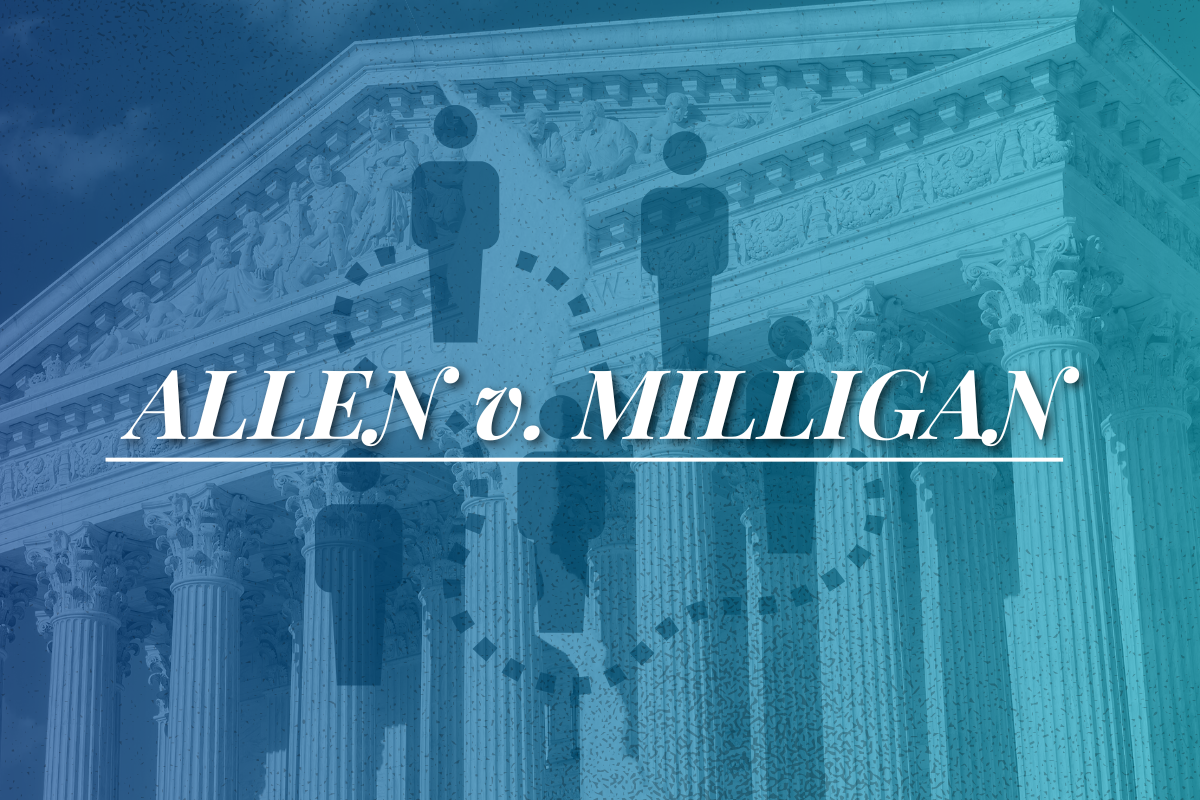Rain or Shine, Nonprofits Must Keep Fighting for Fairness in Redistricting and Voting Rights: Allen v. Milligan Ruling Shakeup
Issues

As Ruth Bader Ginsburg once said, you don’t throw away your umbrella in a rainstorm just because you are no longer wet. In a surprise ruling in Allen v. Milligan, Chief Justice John Roberts, joined by Justices Sonia Sotomayor, Elena Kagan, Ketanji Brown Jackson and Brett Kavanaugh held that Alabama violated Section 2 of the Voting Rights Act (“VRA”) in 2021 by enacting a redistricting plan that included only one district with a majority of African American voters. Section 2 of the VRA makes it illegal to limit or deny someone’s right to vote on the basis of race or color. This includes redistricting maps in which minority group members are strategically placed into districts for the sole purpose of diminishing their voting power and effectiveness.
The state legislature of Alabama used the gerrymandering practices of packing and cracking to dilute minority voters, making their votes ineffectual. Packing is creating a district with a concentration of a specific group of voters or constituency. On the other hand, cracking is the practice of dividing a group of voters across several districts, weakening their collective voting power. In 2021, Alabama engaged in these practices and created six majority white districts and one minority district, even though African Americans represent 27% of the population. With the Supreme Court affirming the lower court’s ruling that this was a violation of Section 2 of the VRA, Alabama must now redraw its maps and establish at least two majority – minority congressional districts.
The ruling in Allen v. Milligan deserves celebration as it defied expectations of a potentially damaging blow to Section 2. This decision is creating a ripple effect that extends to other Section 2 VRA cases. For example, the U.S. District Court for the Northern District of Georgia recently ordered supplemental briefings on the impact of Allen v. Milligan in the case GA State Conference of the NAACP v. State of Georgia. Challenges to congressional and legislative redistricting maps have emerged in at least ten other states as well.
But it is still raining.
The Voting Rights Act has been under attack for decades. Nonprofits, including 501(c)(3) public charities, 501(c)4s, and others, must get involved in opportunities for fair redistricting and fight to preserve and strengthen the VRA. Now is the time to amplify every voice, especially those who have historically been gerrymandered into silence. There is now an opportunity in Alabama, and potentially in several other states, to advocate for fair maps and fair redistricting processes.
The redistricting process varies from state to state. In Alabama and in other states where maps are being challenged in the courts, state legislatures have led the map-drawing process. District maps take the form of legislation and are voted on by the legislative assembly. As a result, some advocacy activities designed to influence legislators during this process could count as lobbying. The good news is that public charities are allowed to lobby within limits and can even join forces with allies to amplify their voices and maximize their influence during the redistricting process.
Lobbying is a form of advocacy that seeks to influence the passage or defeat of legislation. This could be achieved by directly communicating with lawmakers or engaging the public to support your legislative goals. An organization may want to influence the map-drawing process itself and/or votes to approve the maps state legislatures design. They may also choose to pursue the strengthening of the VRA on the federal level by advocating for Congressional action. In either scenario, these activities could be considered lobbying, which should be counted against a public charity’s lobbying limits. On the other hand, 501(c)4s, 501(c)5s, and 501(c)6s may engage in an unlimited amount of lobbying activities, so they are perfectly situated to chime-in regarding legislative redistricting.
Importantly, not all activities related to redistricting or voting rights will count as lobbying. For example, nonprofits could educate the public on the importance of voting rights and fair redistricting without making, or taking a stance on, specific legislative proposals. They can also litigate unfair maps in the courts, sign on to amicus briefs, educate the public about the importance of voting, and more.
While the unexpected ruling in Allen v. Milligan marks a significant stride towards amplifying minority voices in Alabama, and possibly several other states, there remains substantial work ahead. This landmark decision has opened up new avenues for nonprofit organizations to advocate for their communities and fair maps. How will your nonprofit join the fight to ensure fair redistricting processes moving forward?
